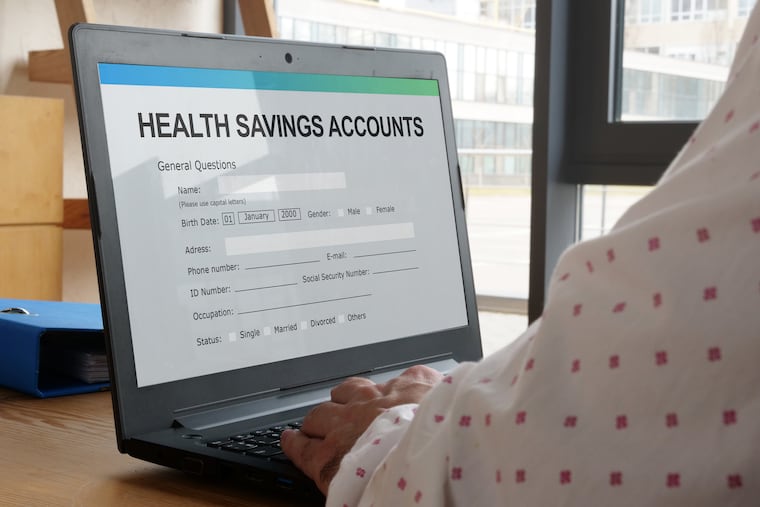How to make the most of your FSA or HSA during the pandemic
Every penny counts when you've been laid off or furloughed. Here are some tips on how to make the most of HSAs and FSAs during the pandemic.

Flexible spending accounts and health savings accounts — known as FSAs and HSAs — are popular ways for employers to allow workers to set aside pretax money for health care, child care and other expenses.
The IRS loosened restrictions on these accounts to make them even more useful for families during the pandemic, but people who aren’t up to date on the changes and how FSAs and HSAs differ could be leaving money on the table.
We talked to two employee benefit specialists about what you need to know:
Jay Savan, partner, health & benefits, at Mercer, a human resources consulting firm.
Jonathan P. Warner, CEO of Warner Benefits in Wayne.
What is an HSA?
HSAs are savings accounts in which you set aside money, pretax, to spend on medical expenses, such as prescription medications and doctor visits. You’re allowed to contribute $3,550 a year for an individual and $7,100 for a family in 2020, and the balance carries over from one year to the next. The account is owned by the employee, which means that you will continue to have access to the account and be able to spend it on medical expenses after you move on to another job or are laid off.
What is an FSA?
FSAs can be confused with HSAs because they are often called “flexible healthcare spending accounts” but they work differently. Employees can contribute up to $2,750 pretax in a health care FSA in 2020, but most of it must be spent during the year. Many employers allow workers to roll over up to $500 in their FSA at the end of the year and may grant a grace period for filing for reimbursement for eligible expenses after the year ends. Another difference that’s particularly relevant for the thousands of workers who are newly unemployed: FSAs are owned by your employer, which means when you are laid off or leave your job, you forfeit your FSA and any remaining balance.
What happens to my FSA if I’m laid off?
In most cases you will not be able to contribute to your FSA after you are laid off and any new medical expenses will not be eligible for reimbursement, though you can still seek payment for expenses that occurred before your termination. Check with your employer for exceptions to these rules — many allow employees to get reimbursed for expenses through the end of the month in which they were laid off. Employers who are required to offer COBRA coverage for health insurance after an employee leaves the company are also required to offer COBRA coverage for FSA plans. You can opt into COBRA coverage for an FSA plan — and continue to have access to its balance — even if you do not choose to continue your health plan through COBRA.
How can I use the money in an FSA if I’m laid off?
If you’ve been laid off and did not take out COBRA coverage for your FSA, the only way to use the money currently in your FSA is to seek reimbursement for medical expenses that predate your termination or the grace-period date your employer has set. Co-pays, eyeglasses, and prescription medications are popular health-care FSA expenses. Also fair game: over-the-counter medications and pharmacy products, such as first aid supplies, feminine hygiene products, vitamins, thermometers, sunscreen, and blood pressure monitors, according to FSAstore.com, a searchable list of eligible products for different types of FSA and HSA accounts.
How can I make the most of my FSA or HSA while I’m furloughed or working from home?
As part of the CARES Act, the federal pandemic relief package, the IRS loosened contribution rules for FSAs and HSAs to allow employees to make mid-year changes to the amount they contribute. Some families struggling with routine monthly expenses may be relieved to be able to temporarily reduce or suspend payments to an HSA or FSA, especially if they are not currently accruing as many eligible expenses. For instance, many families with a dependent care FSA base annual contributions on the amount they plan to spend on daycare or summer camp — expenses that may be on hold right now. Other families concerned about upcoming health expenses may want to increase the amount they contribute. Under the new IRS rules employees will be allowed to roll over an extra $50 in FSA funds — a total of $550 — in 2021 and may have longer to submit for expenses this year. A survey by Mercer found that nearly half of companies planned to allow these mid-year election changes, so it is important to check with your employer to see if they are adopting the new IRS rules.